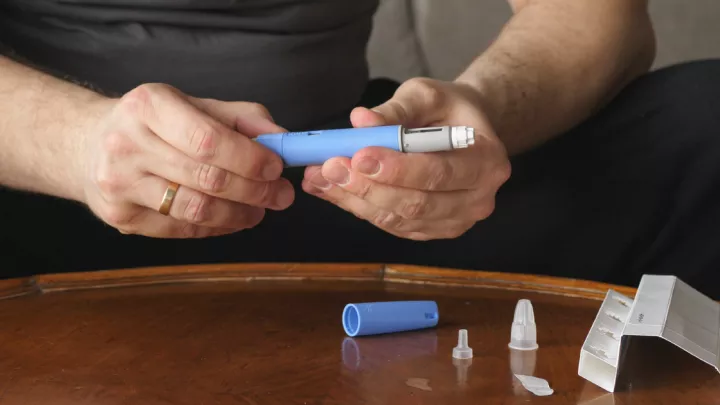You asked, we answered: How do you pop a clogged ear?

Question:
I have muffled hearing in one ear. What can I do to alleviate it?
Answered by Ear, Nose and Throat physician assistant Nicole Bowdino, PA-C:
Many times, when people feel they need to pop their ears, it's because they have pressure behind their eardrum, which creates the feeling of fullness and may muffle their hearing. Conditions that can create the feeling of ear fullness include:
- Traveling at high altitude or on an airplane.
- Upper respiratory or sinus infection.
- Seasonal allergies.
- Wax buildup.
- Hearing loss.
Essentially, anything that causes nasal congestion can also cause your ears to become full or plugged. The ear connects to the back of the nose through the eustachian tube, which equalizes that pressure. So, if your nose has swelling, inflammation or drainage, your eustachian tube can swell and cannot equalize your ear pressure.
How to safely pop your ears
It's safe to pop your ears through auto-insufflation, which is when you pinch your nose and blow to force air to go up your eustachian tube to open it up. This process allows air to be equalized from the middle ear space, opening the ear up. Auto-insufflation is safe in moderation – a few times a day – if you're having symptoms of pressure and fullness in your ears.
Still, we don't love when people repeatedly auto-insufflate to try to clear their ears. If you pop your ears too much, you can stretch your eardrum, which can, in turn, cause other problems. If you are experiencing nasal congestion, post-nasal drip or seasonal allergies with pressure in your ears, using nasal saline rinses and an over-the-counter nasal steroid spray – such as fluticasone – can be helpful. These treatments are the most effective way to treat the underlying problem.
If you're popping your ear and not getting any improvement, or the pressure sensation isn't going away, you should have your medical provider take a look. It could be earwax or an ear infection blocking your ear. A wax impaction can create the sensation of fullness and muffled hearing. However, popping them won't provide any relief because the wax is blocking the ear canal.
Dealing with wax in your ear
If you have excess wax in your ear, it's OK to use plain distilled white vinegar mixed with some rubbing alcohol. Fill your ear with a small amount of this solution and let it sit for a minute; it should help clear the wax. If that doesn't work after doing it for a day or two, I would see a provider to have the ears examined and cleaned. Wax can often be difficult to clean at home, especially for people who frequently use cotton swabs.
Cotton swabs tend to cause wax impactions, as they typically push wax deeper into the ear. Eventually, this process results in a large ball of wax and cotton fibers that are solidified in the ear canal and can cause a sensation of fullness and muffled hearing.
We get nervous when people dig around in their ears with anything. It's easy to damage your eardrum or scrape your ear canal, which can be painful and lead to infections and further complications. In addition to the vinegar and alcohol mix, moisturizing your ears regularly can help reduce wax buildup. Using mineral or baby oil to soften ear wax allows your natural wax cleaning mechanisms to do their job better. A drop or two of these oils a few times a month can be beneficial.
When to call your doctor
Although someone may have told you not to pop your ears, for those with generally healthy ears who don't have a significant history of ear infections, popping your ears is safe in moderation. Consider evaluation with your medical provider if you have difficulty hearing, drainage, pain or persistent symptoms that do not resolve with conservative treatments.
The one outlier with clogged ears to be wary of is a condition called sudden sensorineural hearing loss. If you suddenly can't hear anything out of an ear and it's ringing and feels full, it could be sensorineural hearing loss. This condition requires evaluation with audiology and ENT as soon as possible. Sudden sensorineural hearing loss is an urgent matter that requires time-sensitive treatment.







